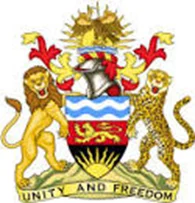
1. MALAWI PERSONS WITH DISABILITIES 2024 ACT
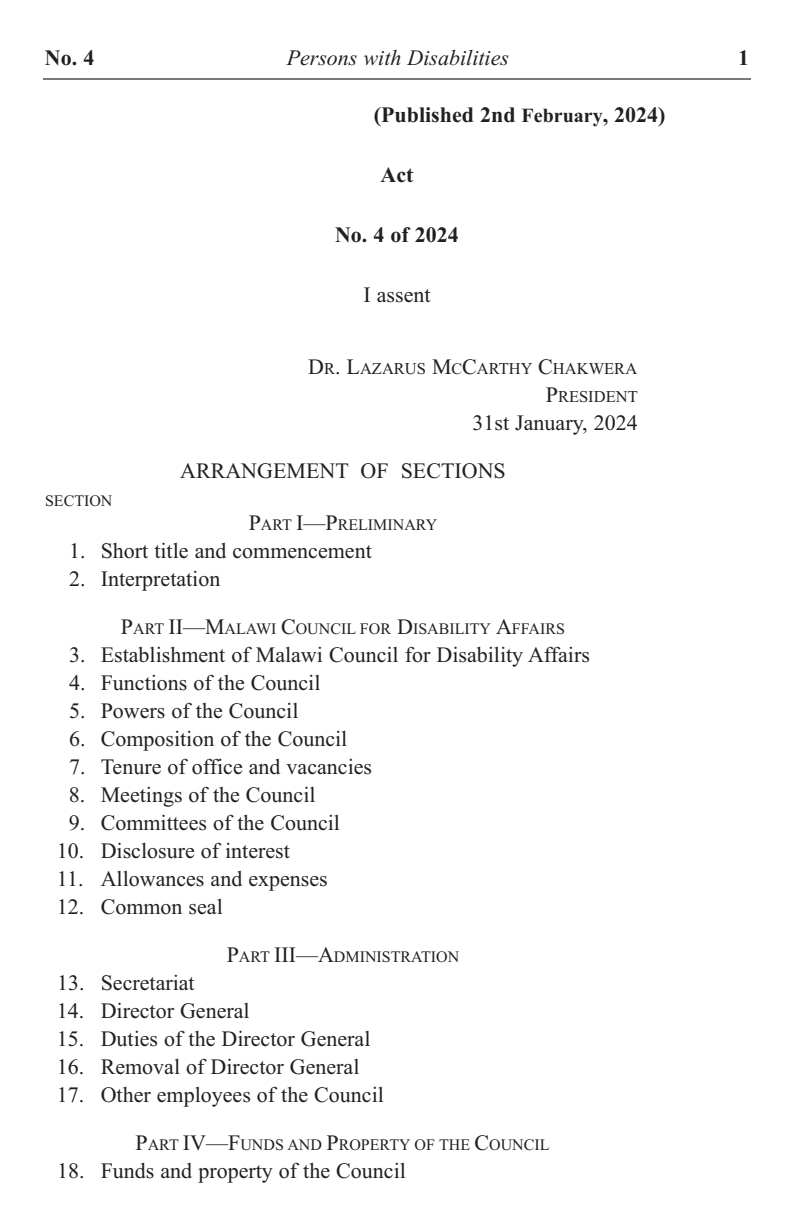
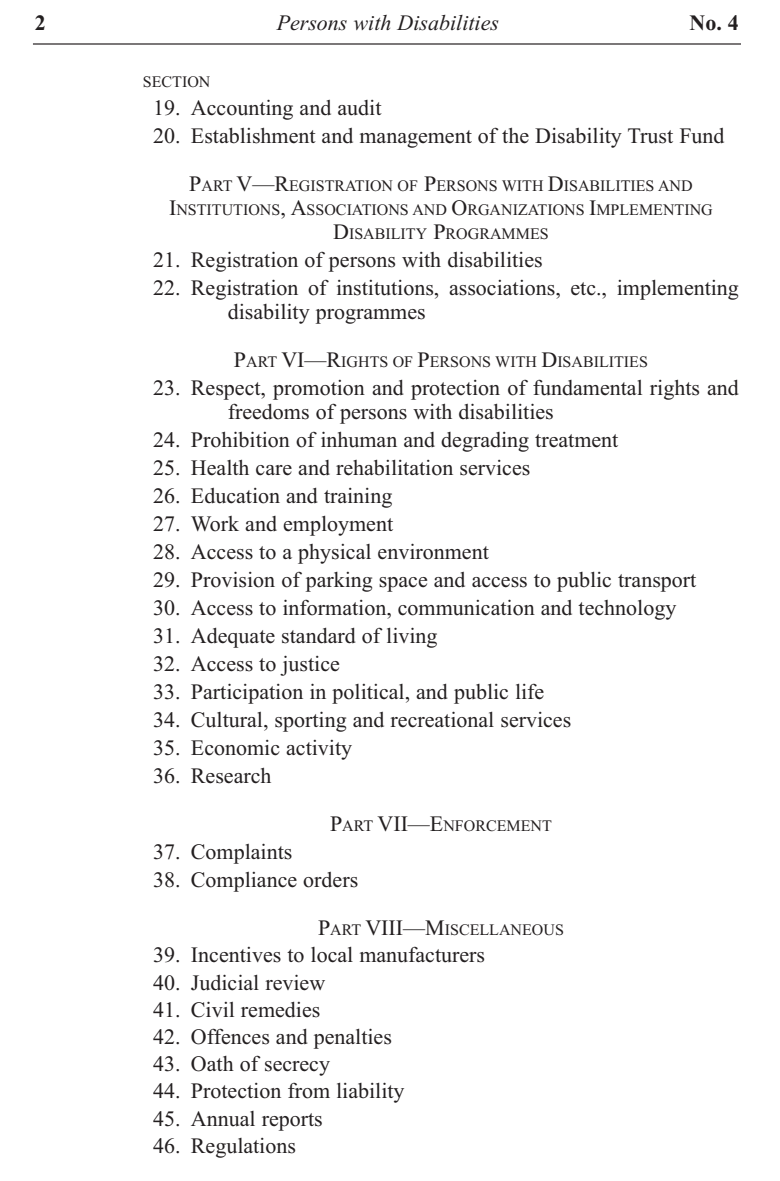
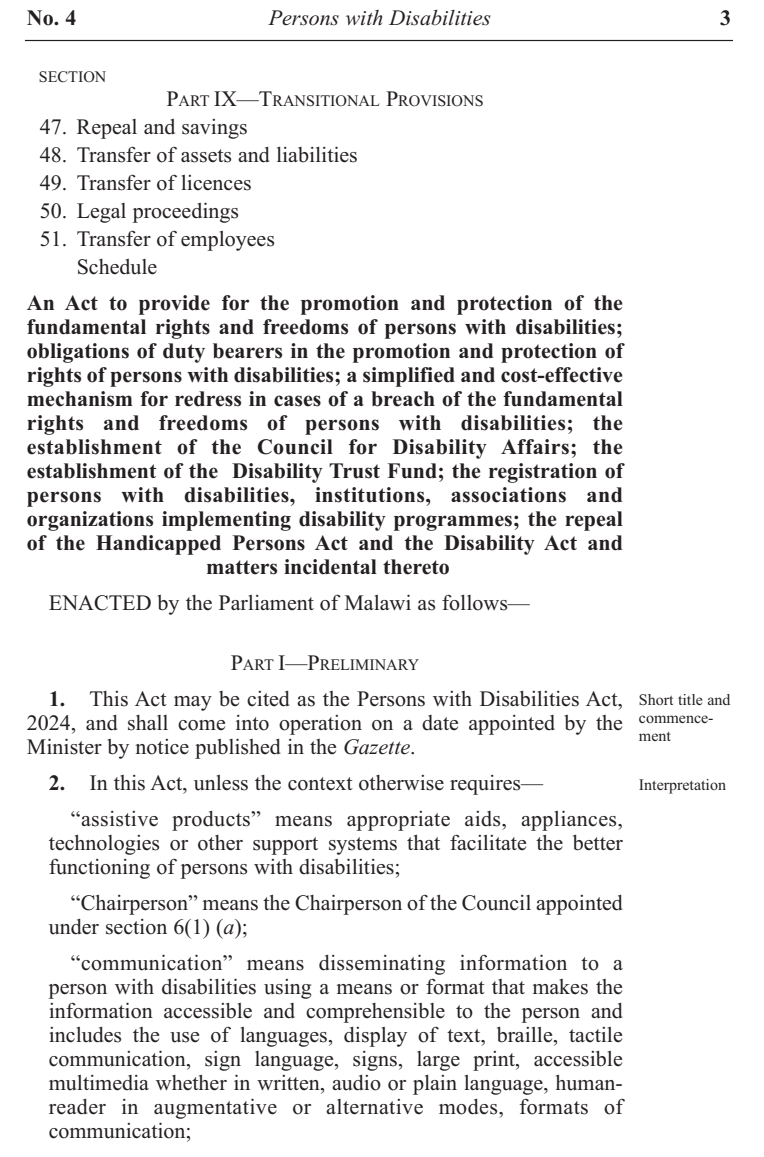
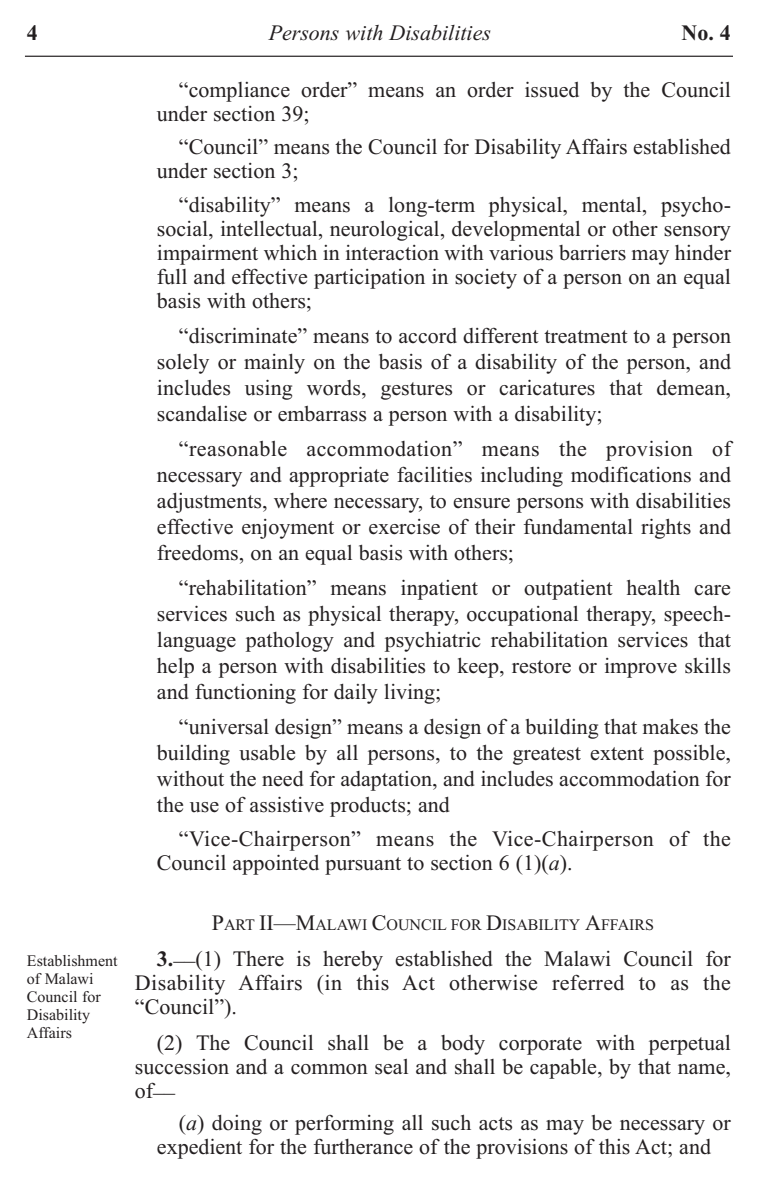
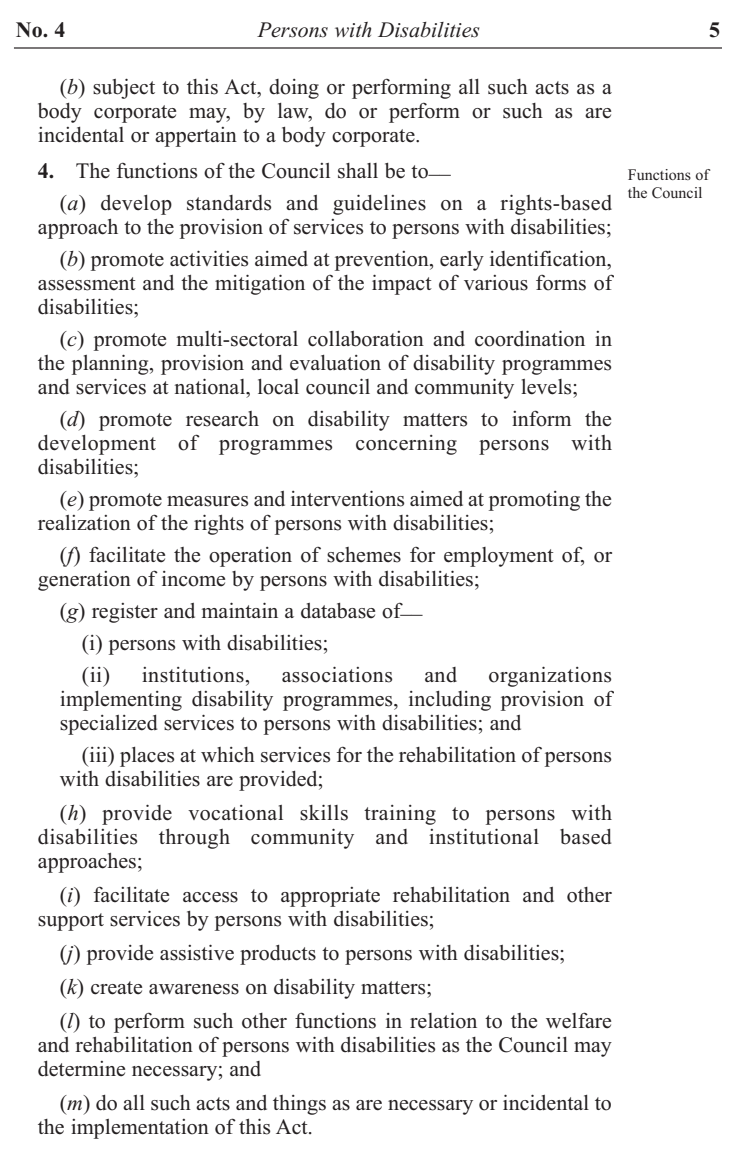
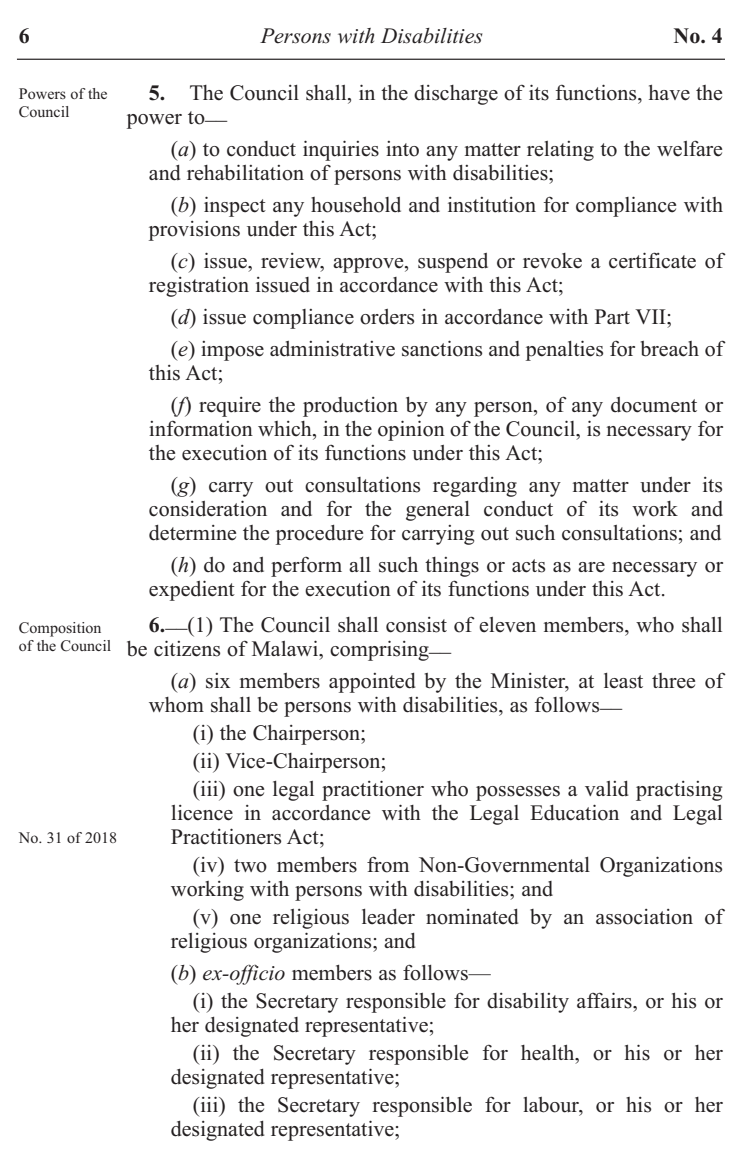
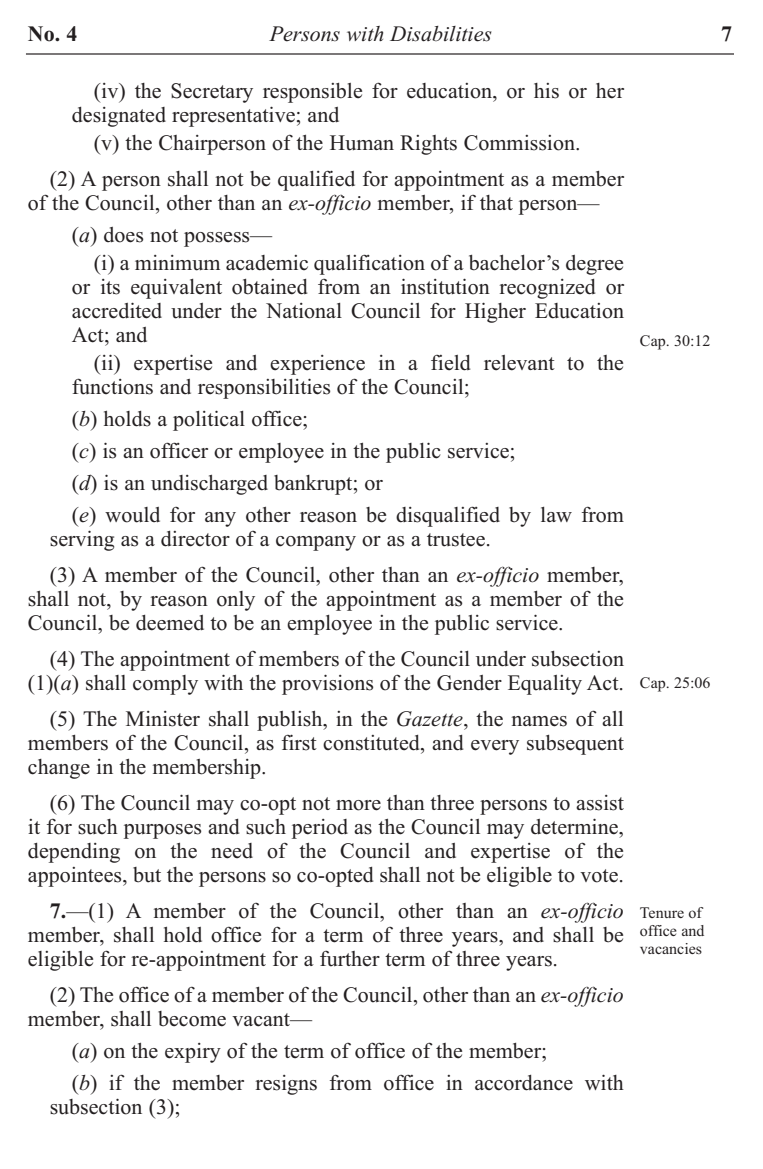
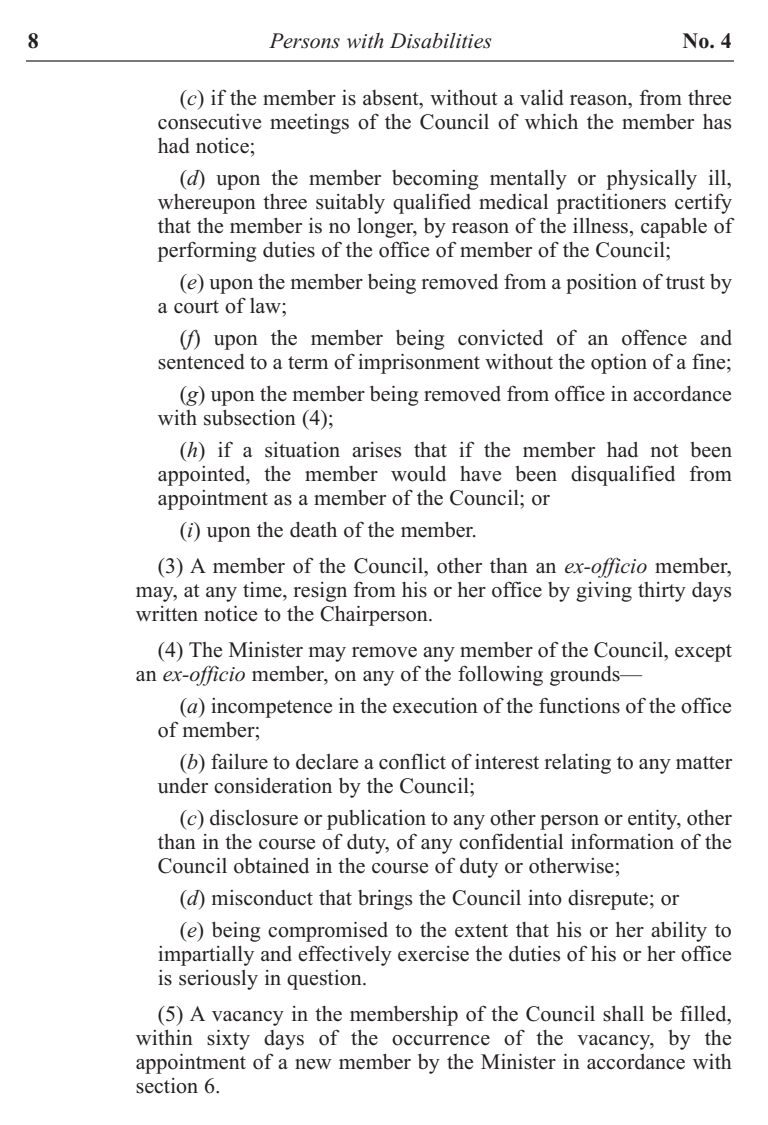
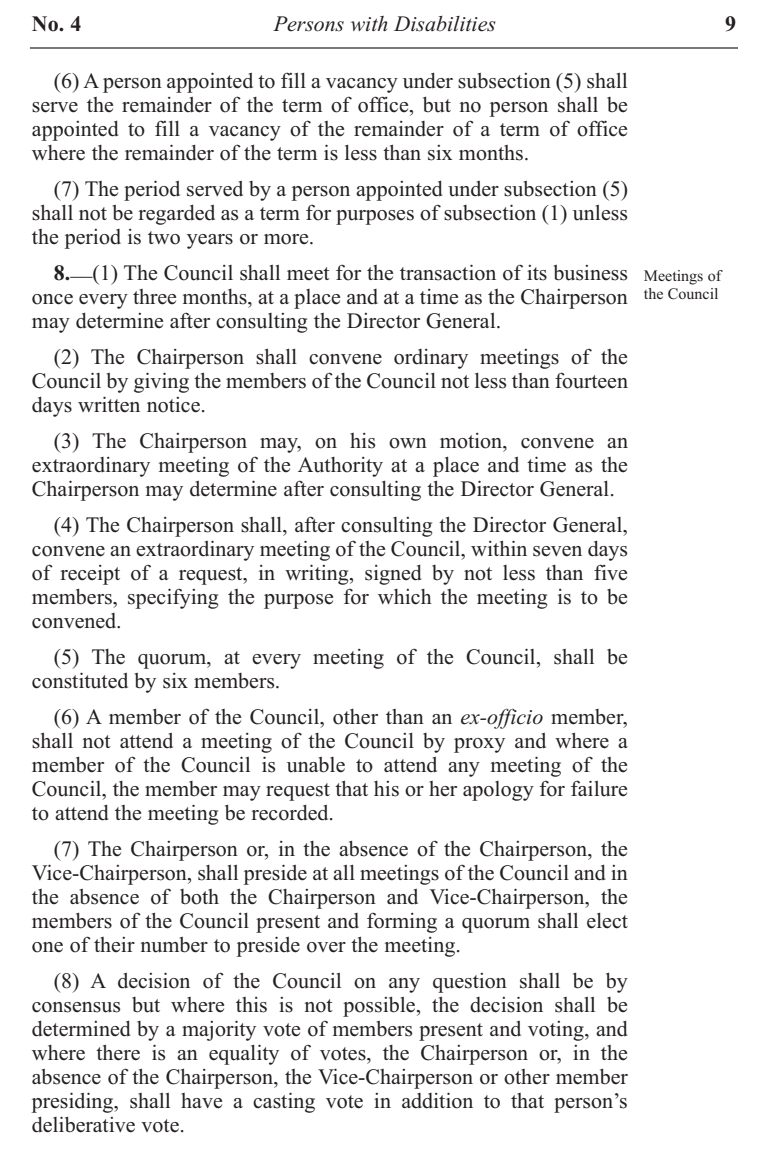
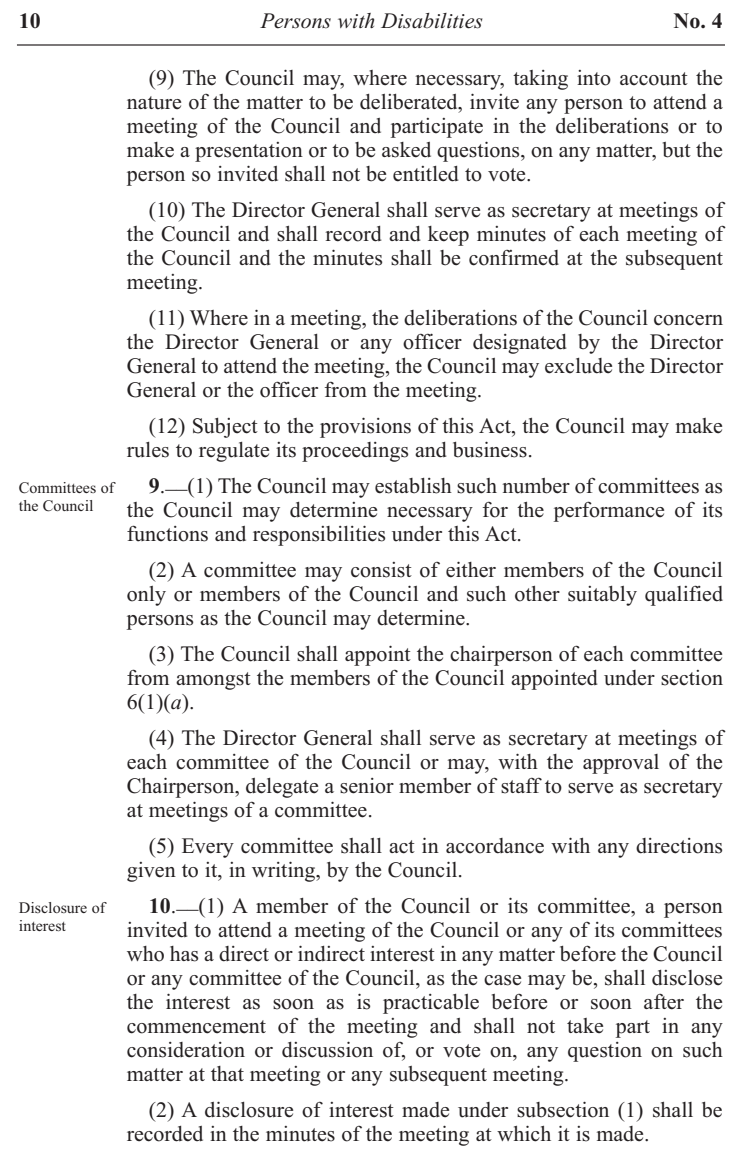
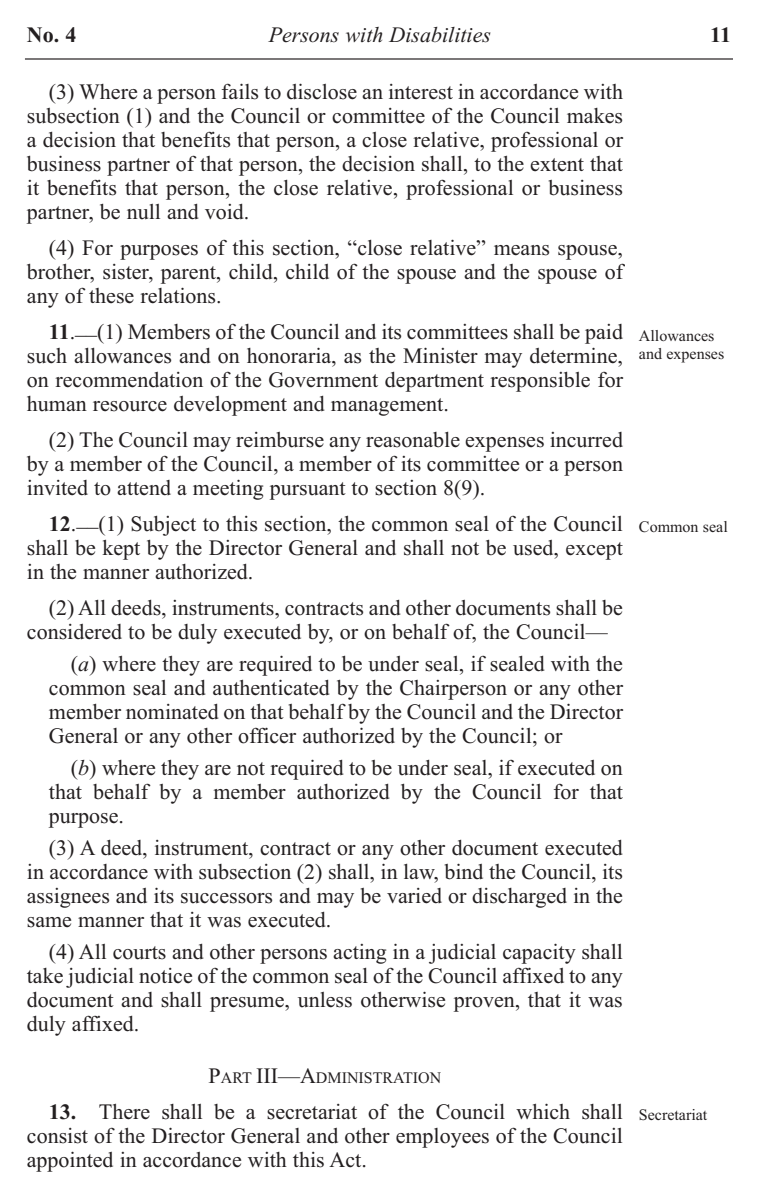
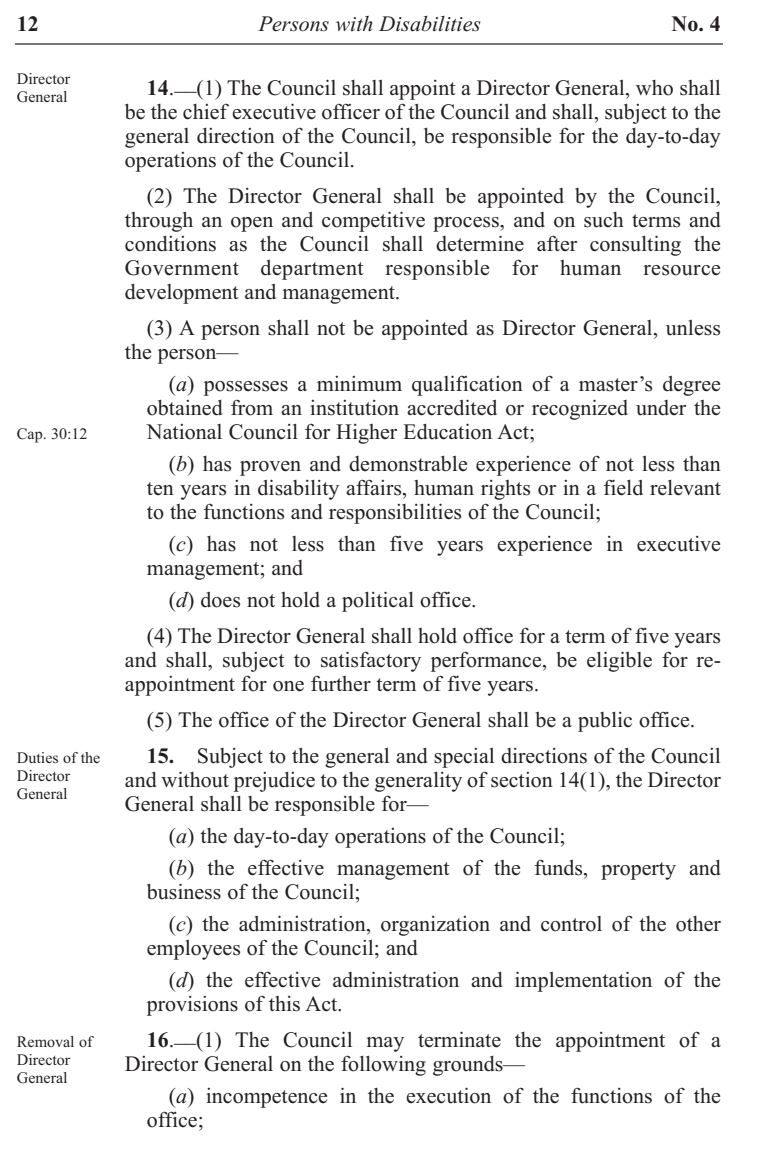
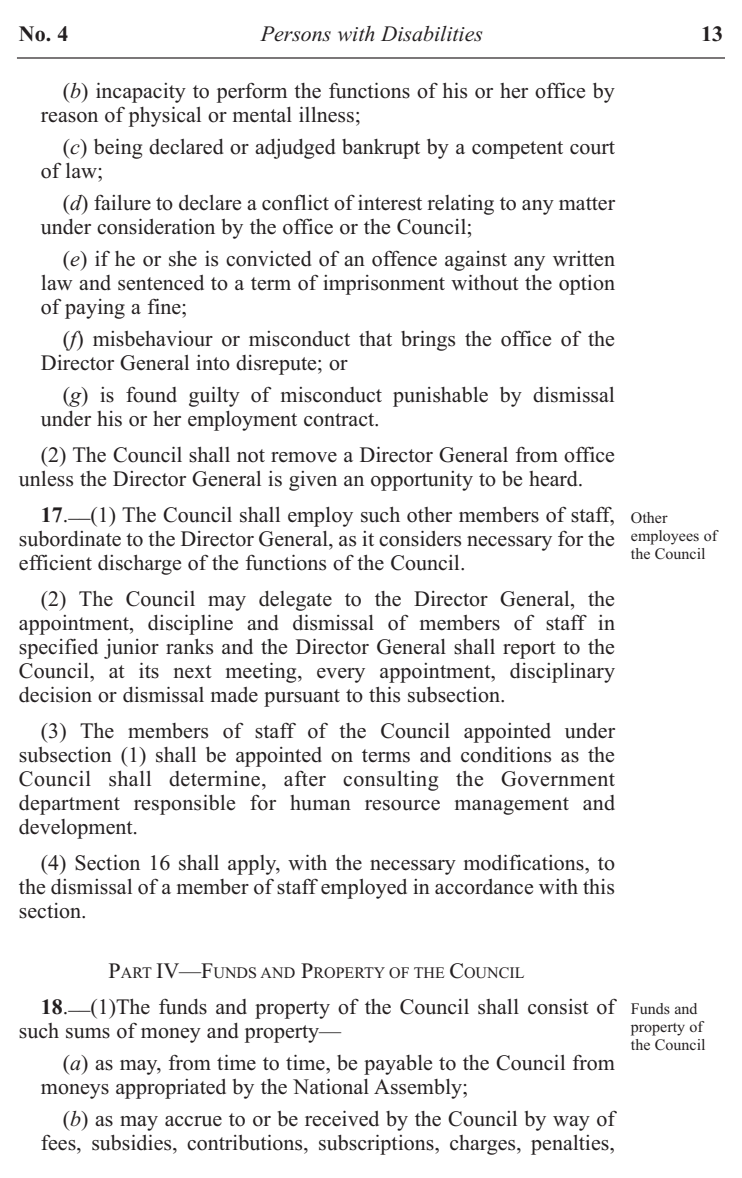
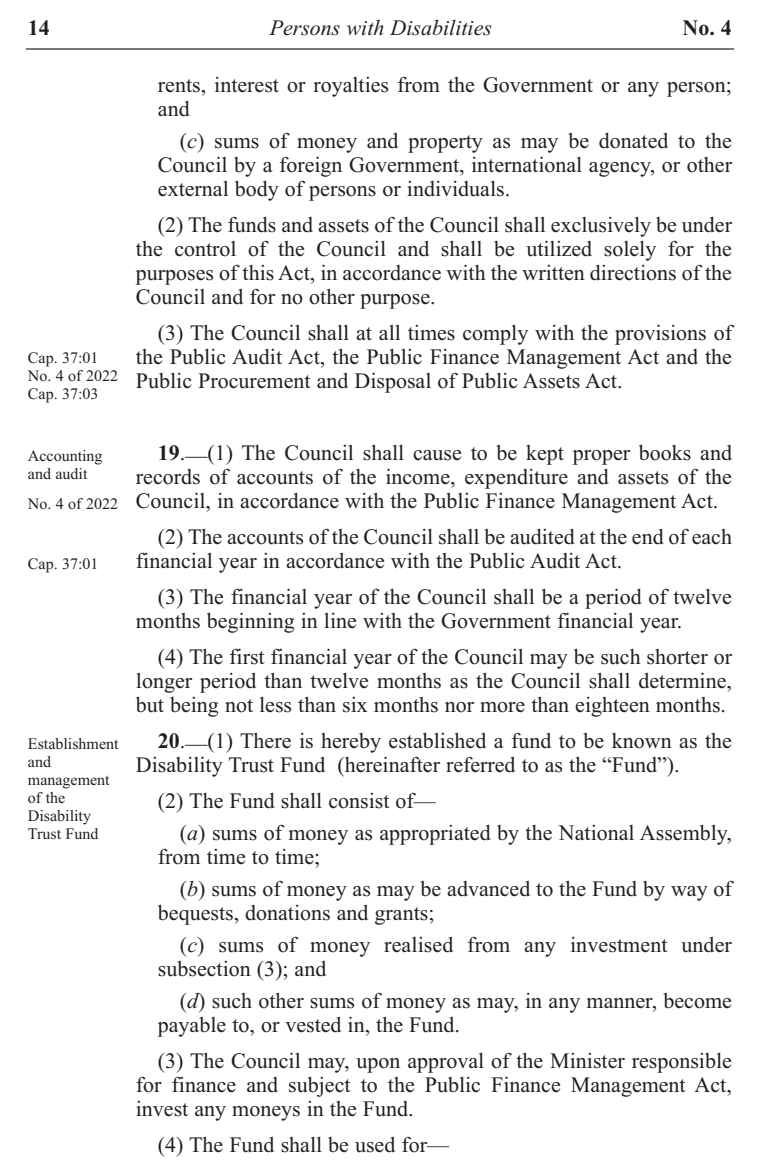
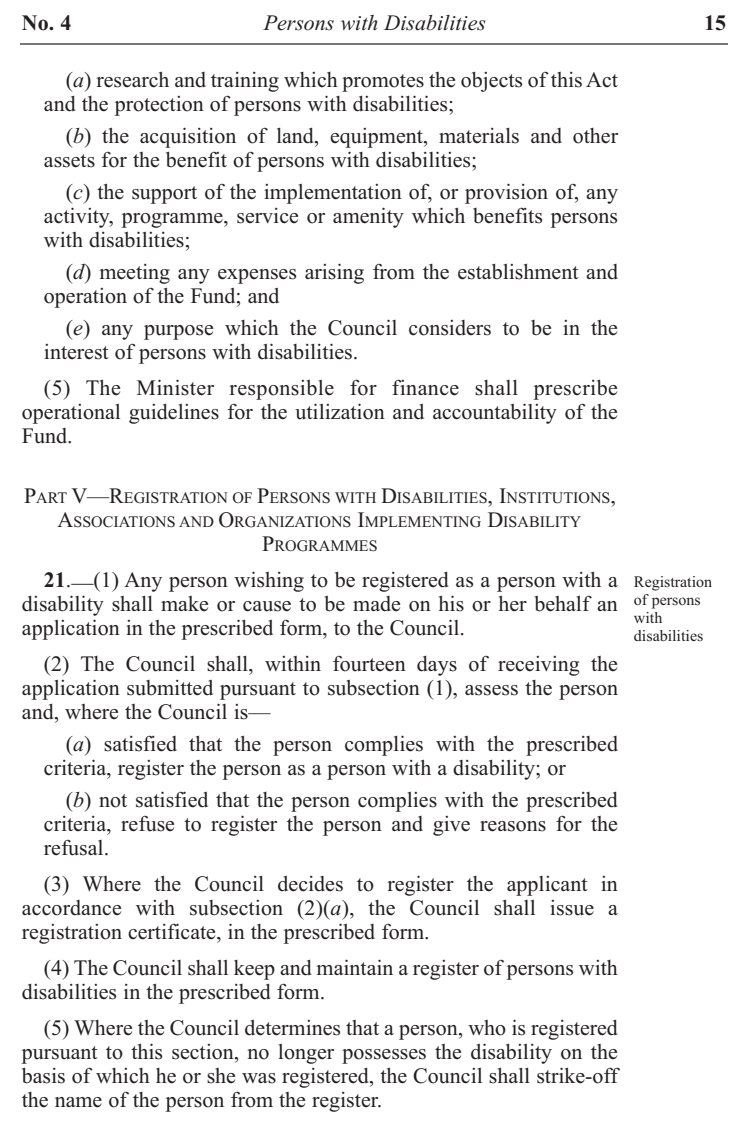
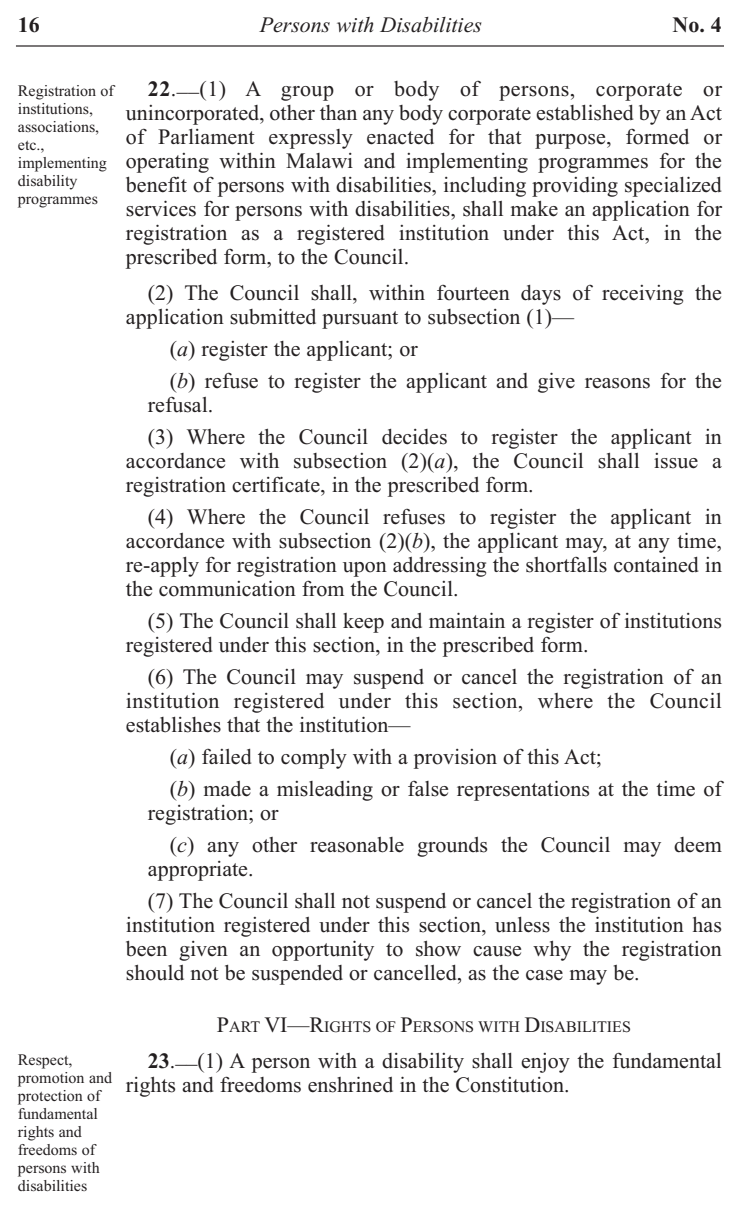
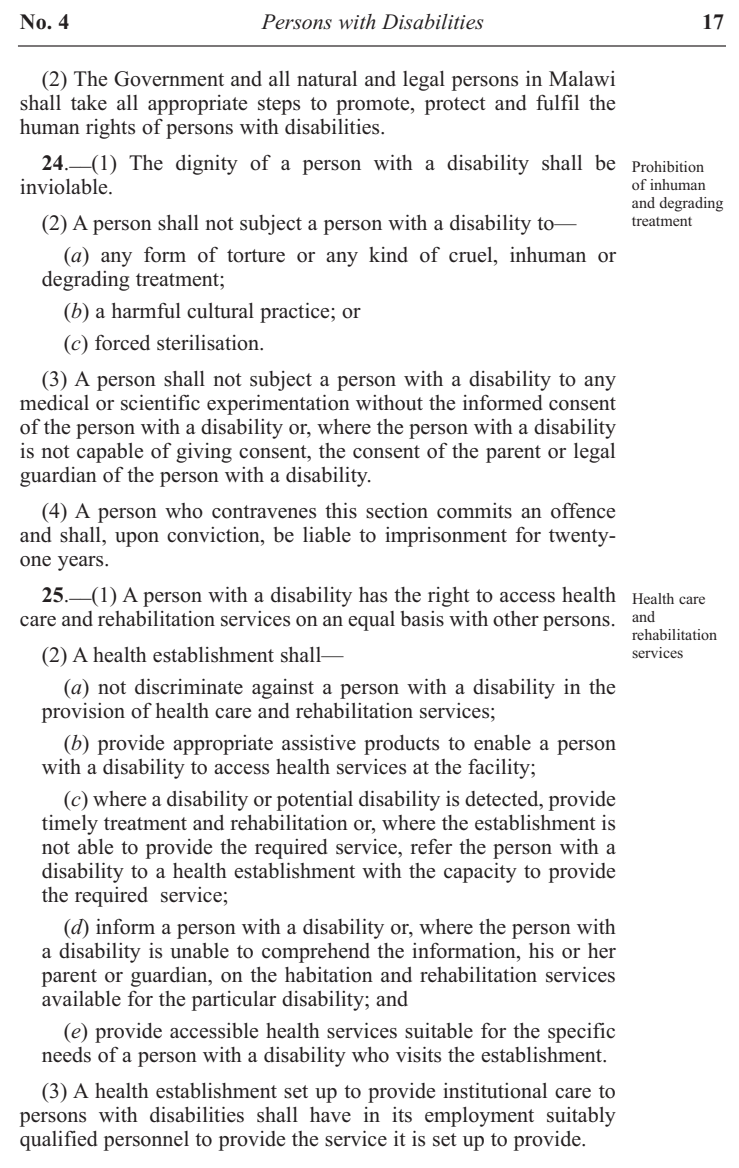
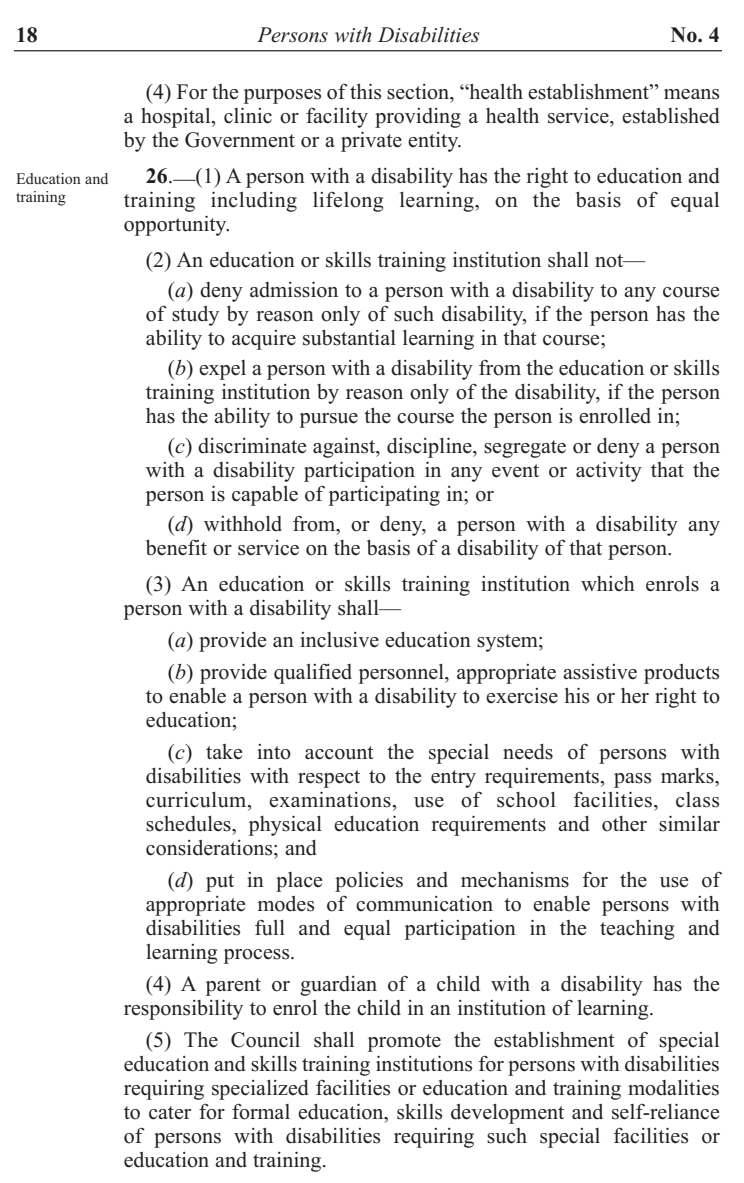
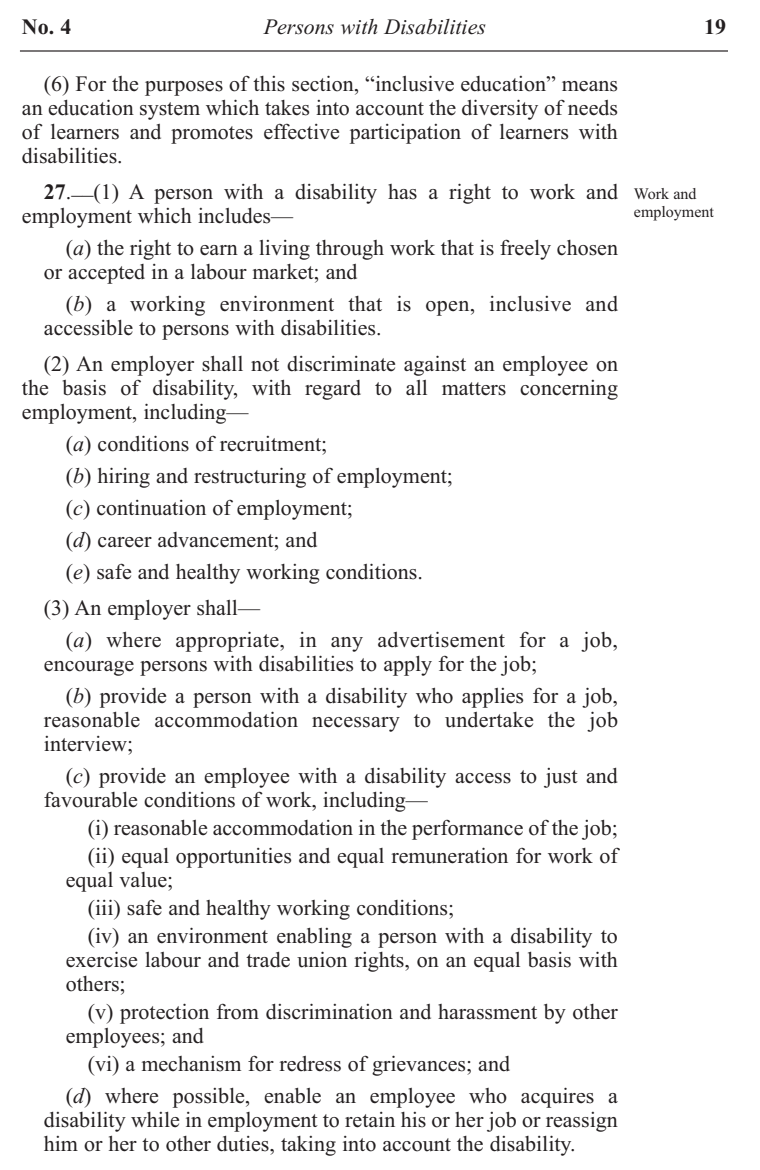
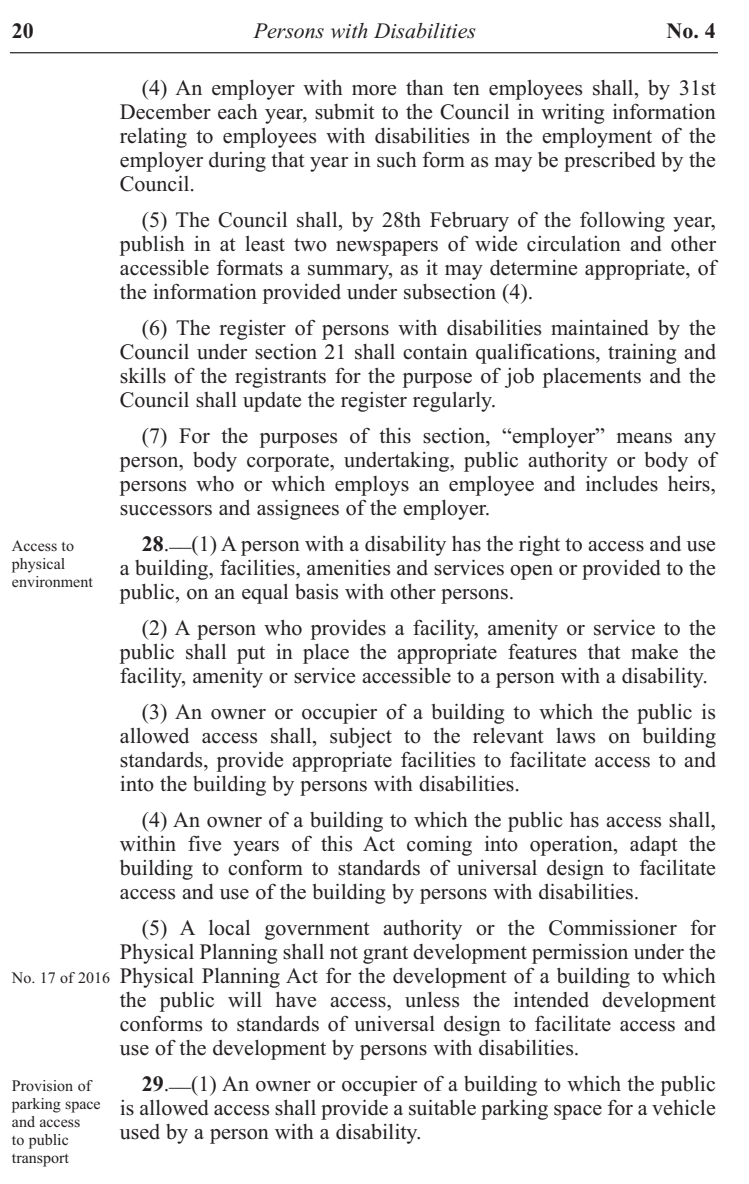
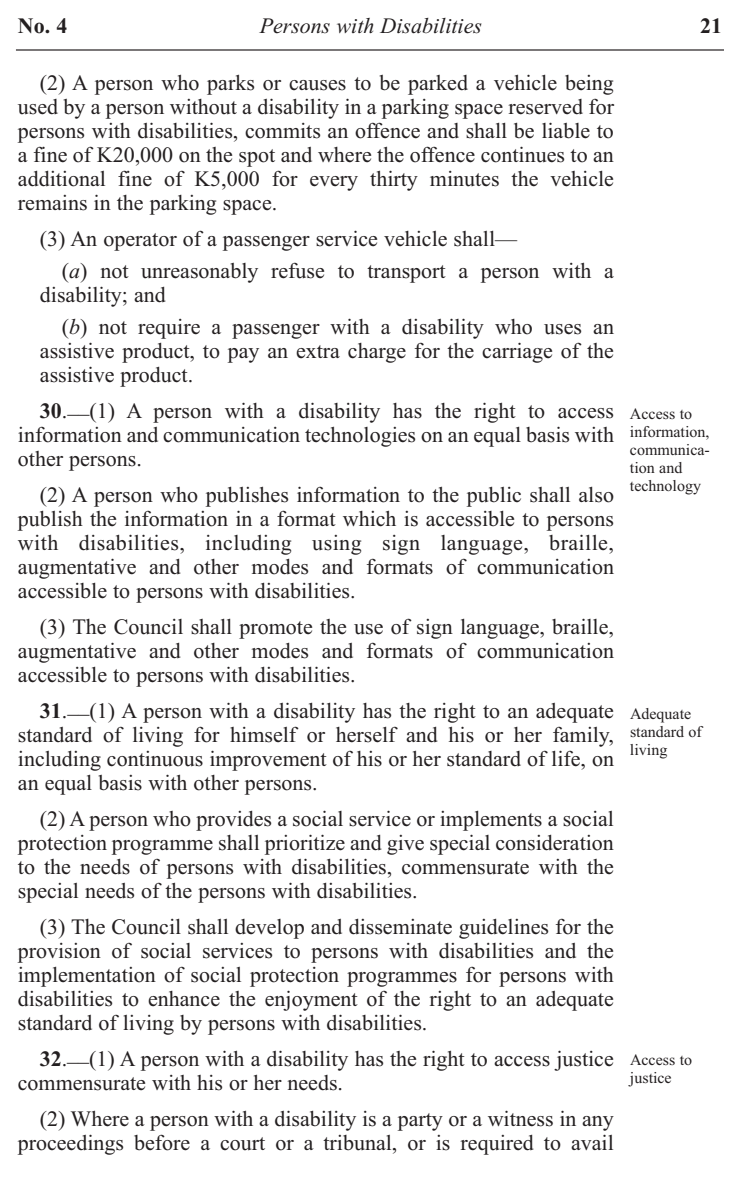
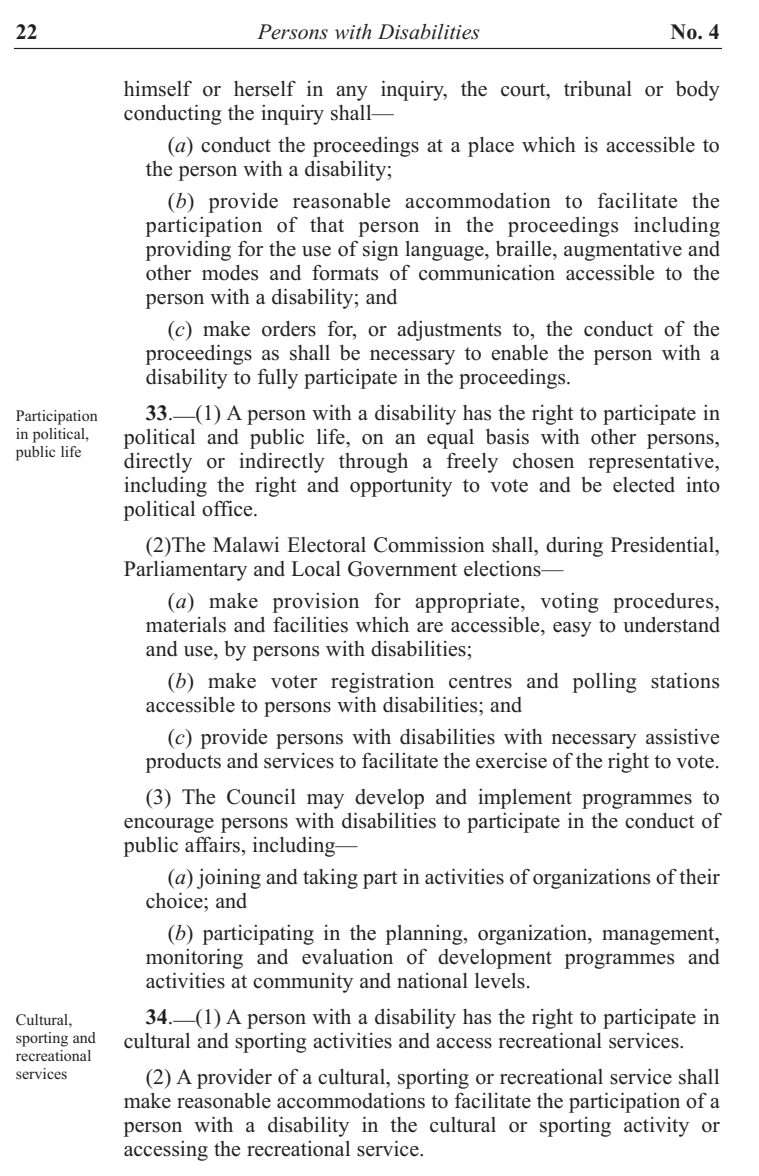
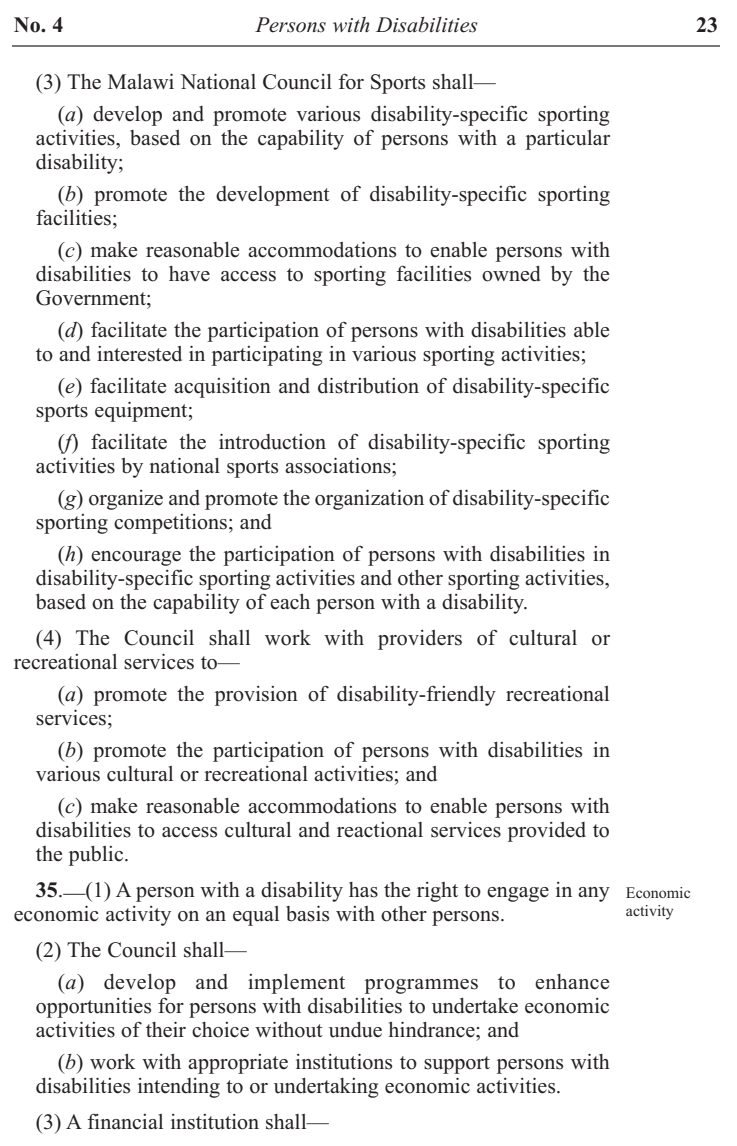
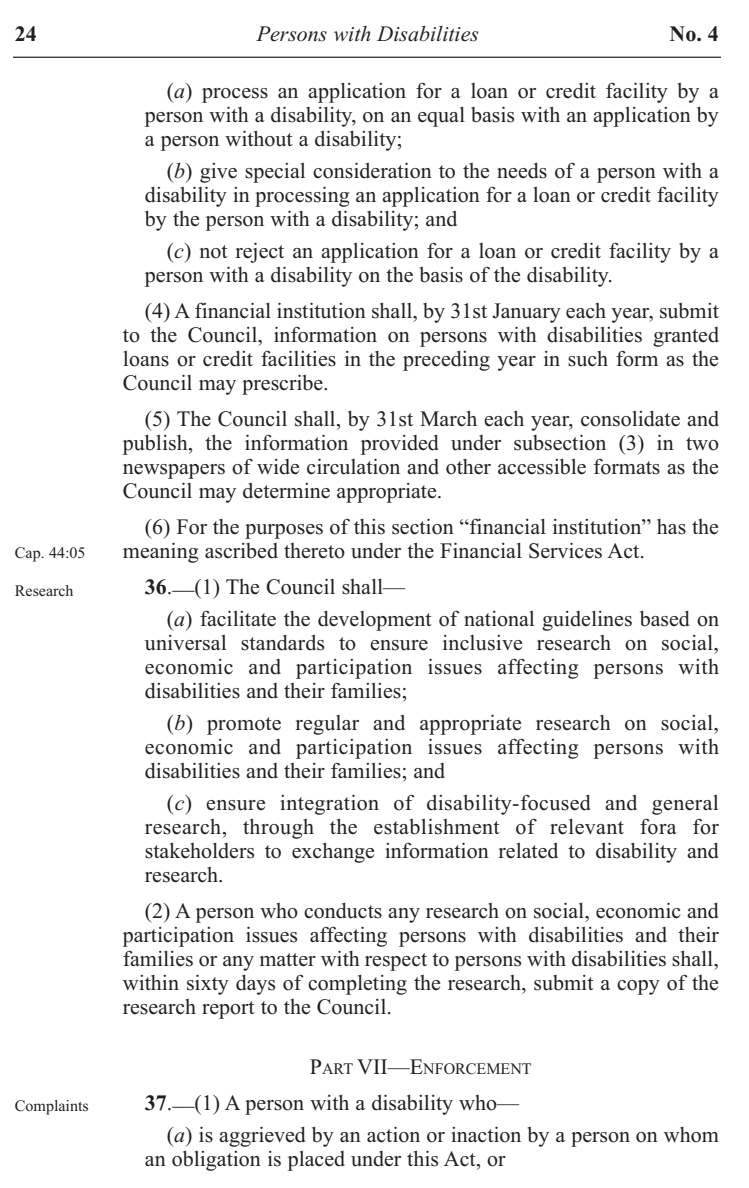
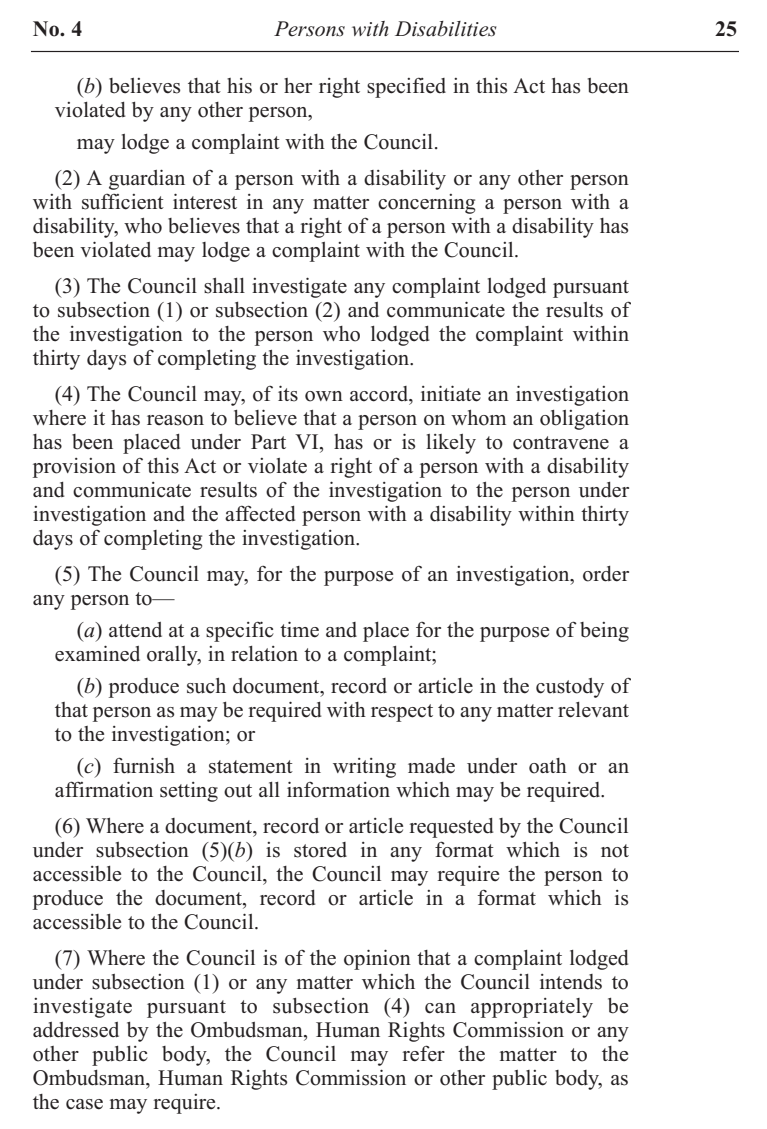
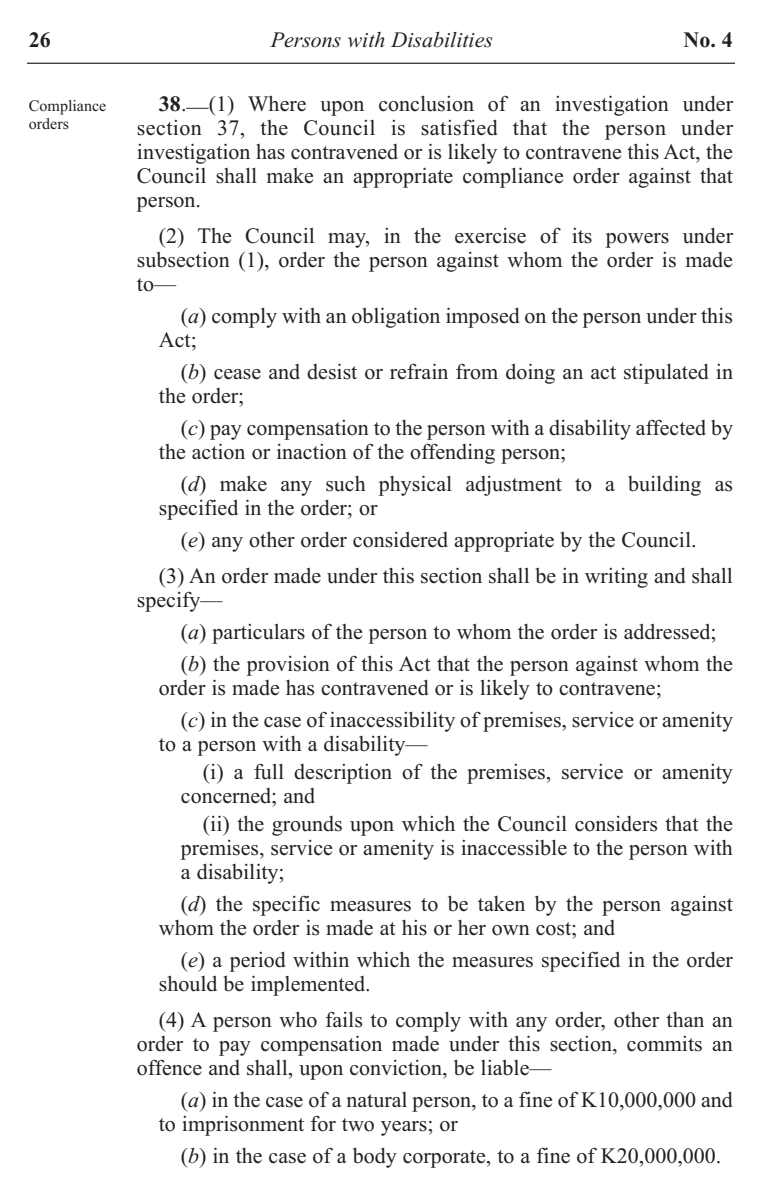
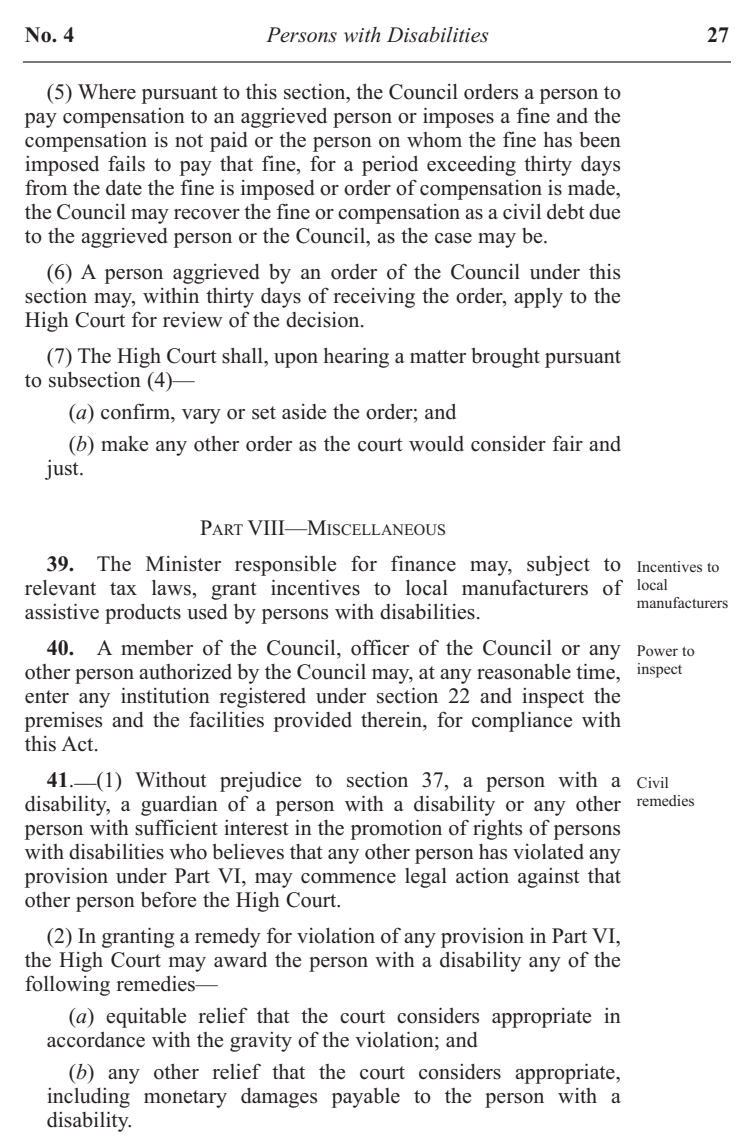
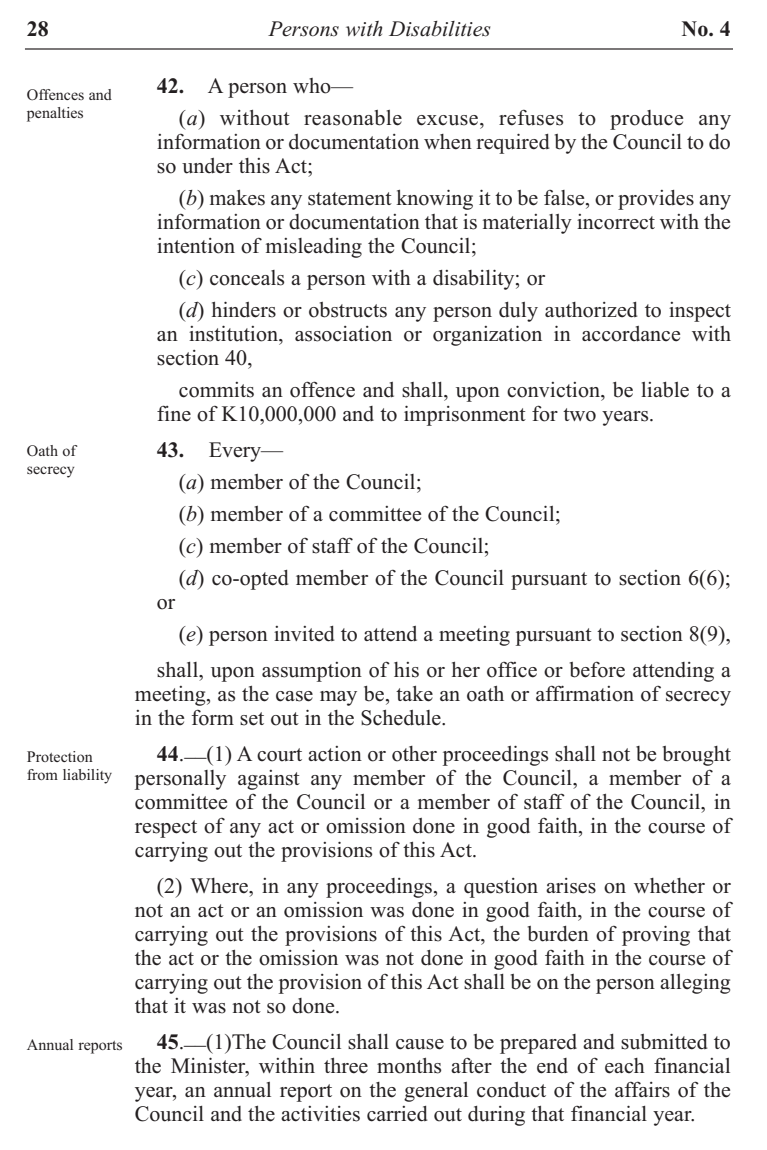
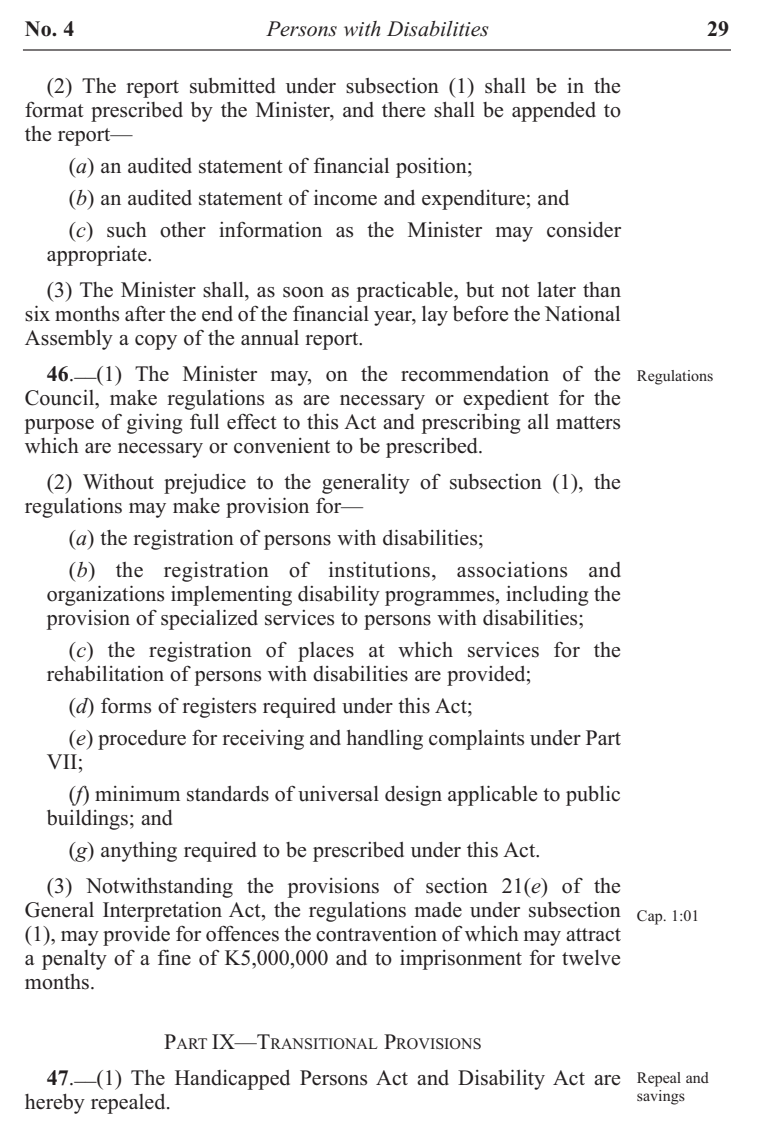
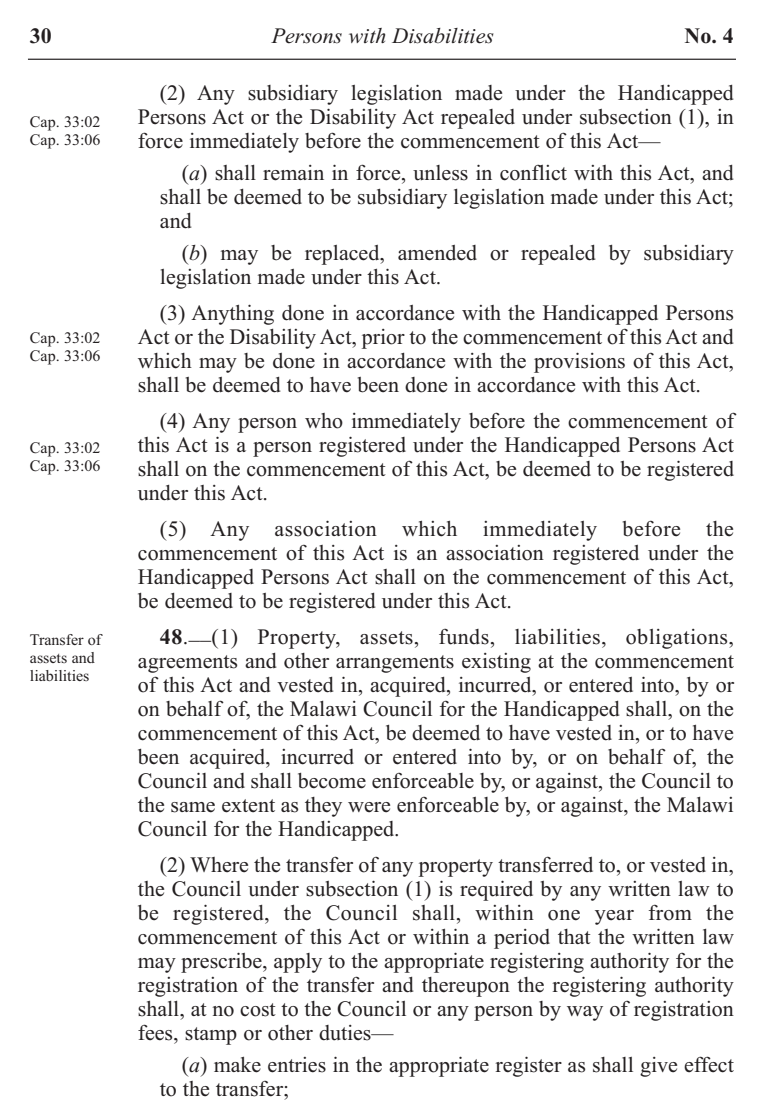
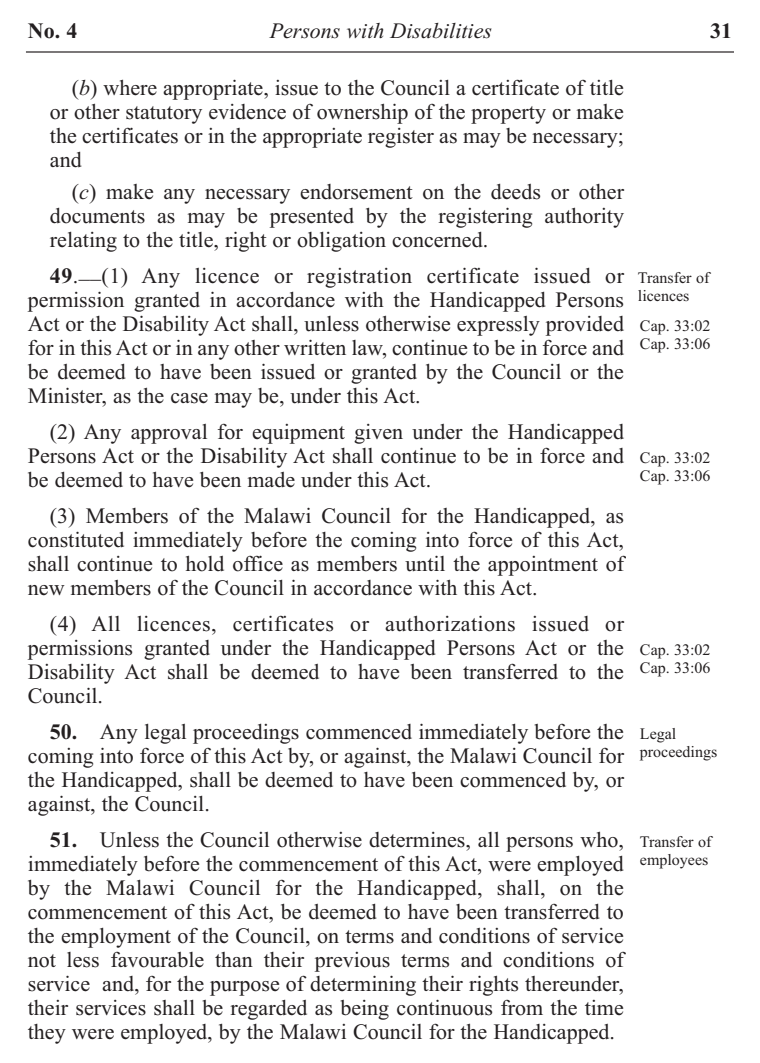
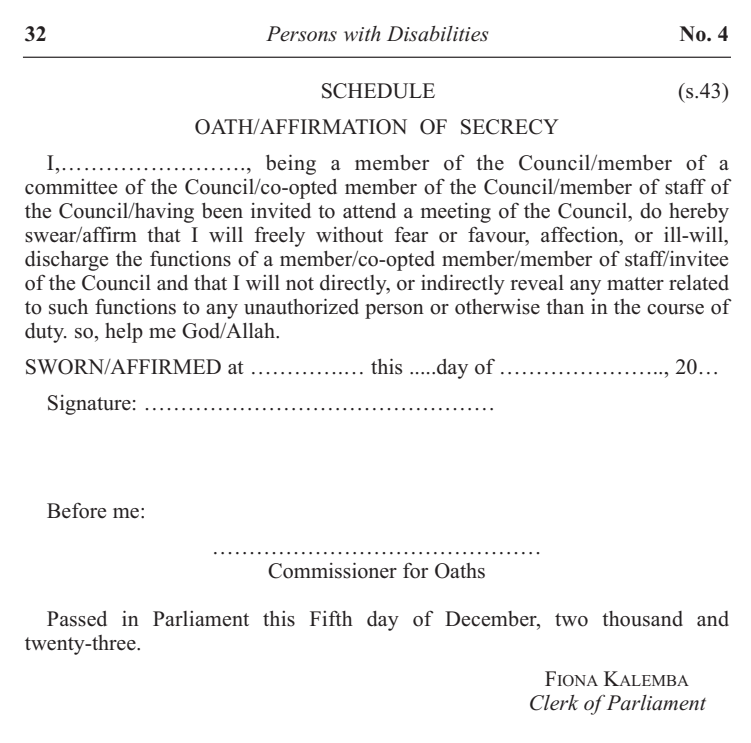
2. AFRICAN DISABILITY PROTOCOL
The African Disability Protocol: a call to leave no one behind
The African Disability Protocol is the legal framework based on which member states of the African Union are expected to formulate disability laws and policies to promote disability rights in their countries.
The African Disability Protocol ensures that no one is truly left behind. It is unique to the continent and takes African practices and concerns into consideration so that the lives of people with disabilities improve. It tackles the ingrained issues of disability discrimination so that everyone can access health, education, and employment without stigma.
The protocol addresses and encompasses specific issues such as customs, traditional beliefs, harmful practices, and the role of the family, caregivers, and community. It also deals with community-based rehabilitation and minority groups within the African disability community, including people with albinism. Although the United Nations Convention on the Rights of Persons with Disabilities (UNCRPD) is the first comprehensive human rights treaty of this century, it does not address the unique challenges that the African Disability Protocol does.
The protocol takes into account the general comments and observations of the UNCRPD. It builds on the rights enshrined in the UNCRPD and Universal Declaration of Human Rights but uses a rights-based approach, but is more detailed and illustrative in representing the uniqueness of the African context.The protocol was adopted in 2018 as the Disability Protocol to the African Charter on Human and People’s Rights (Banjul Charter). It will come into effect only after it is signed and ratified (made legally binding) by 15 member states of the African Union. Through our Equal World campaign, Sightsavers is working with partners in Ghana, Malawi, Nigeria, Kenya, Senegal, Sierra Leone and Zimbabwe to campaign for the ratification of the protocol. This has so far included hosting a side event at the Conference of State Parties to the UNCRPD (held in June 2021) to communicate the importance of the African Disability Protocol. Our country offices have also been holding side events, one of which is available to watch below.
How can we ensure that the African Disability Protocol is ratified?
It is vital that advocacy work continues to ensure the ratification of the protocol. As of May 2021, the protocol had 10 signatures and only one ratification with several states at various stages in their ratification efforts. It is critical that stakeholders and advocates call on all African Union states to ensure their ratification and implement the protocol. COVID-19 has greatly affected people with disabilities across the continent so now, more than ever, is the time to advocate for governments to ratify the protocol. We must all join together and work towards ratification so that the lives of millions of people with disabilities can be improved.
If you would like to find out more about the African Disability Protocol or get involved with its ratification in your country, contact Grace Antwi-Atsu, global advocacy adviser at Sightsavers at gantwiatsu@sightsavers.org.
The African Disability Protocol will only come into effect only after it is ratified by 15 member states of the African Union.
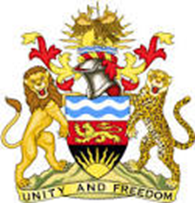
3 . COMMITMENTS FOR GLOBAL DISABILITY SUMMIT 2022
THE GOVERNMENT OF MALAWI COMMITMENTS FOR THE GOVERNMENT OF THE REPUBLIC OF MALAWI (GoM) FOR GDS 2022
1.0 Introduction
Following consultations with government ministries, departments and agencies (MDAs), and OPDs, the following criteria were used to select and adapt GDS22 commitments for Malawi:
Commitments made in GDS18 but are likely not to be fully implemented by February 2022 to ensure full implementation in the period of GDS22
Commitments that cut across sectors to promote multi-sectoral collaboration and networking during implementation
Commitments that promote active participation of OPDs as rights holders
Commitments that focus on key challenges that face persons with disabilities in the Malawi context and that are likely to be implemented in the four-year period of GDS22
3.0 Recommendations on Commitments
3.1 COMMITMENTS TO SECURE AND ENHANCE MEANINGFUL ENGAGEMENT OF OPDS
Build leadership capacity of youths, women, and men with disabilities to address the problem of intersectional discrimination by 2023
Support coalition building and strategic partnerships between OPDs and mainstream organisations to promote the leadership of persons with disabilities by 2024
Facilitate access to public funds by persons with disabilities and OPDs by ensuring that application processes are inclusive and accessible by 2022
Consult OPDs during development of national and sectoral policies, programs and legislation based on the principle of “Nothing about us without us” by 2022
Provide adequate financial support to CBID and roll it countrywide by 2025
Commitments on Inclusive Education
Develop inclusive education sector plans, covering from early childhood education to higher education by 2023
Adopt a Zero Rejection Policy at all levels of education in line with provisions of the Disability Act, the Malawi Constitution and the UN CRPD by 2022
Roll out a full module in inclusive education in all the teacher training colleges by 2023.
Reflect on existing challenges to come up with a concrete road map for reviving the National Institute of Inclusive Education Project by 2023.
Make emergency response and recovery plans in education fully inclusive and accessible to persons with disabilities, including plans related to the COVID-19 pandemic by 2022
Design, develop and implement cross-sectoral strategies that incorporate health, rehabilitation, nutrition, protection and transport arrangements by 2025
Collect data on children both in and out-of-school, disaggregated by age, gender and type of disability using the Washington Group Questions and integrate them into Education Management Information System (EMIS) by 2024
Adopt an inclusive education policy by 2023
Commitments on inclusive livelihoods and social protection
Facilitate provision of financial and technical support to cooperatives whose membership includes persons with disabilities to promote income generation and employment for persons with disabilities by 2023
Promote inclusive access to financial services and products for all persons with disabilities, particularly women and youths with disabilities by ensuring that public financing institutions put in place enabling polices and guidelines by 2026.
Provide for appropriate reasonable accommodation and assistive technology by 2023
Revise Malawi Public Service Regulations to promote disability inclusion in the public sector by 2025.
Implement strategies on livelihood in the National Disability Mainstreaming Strategy and Implementation Plan by 2023
Invest in lifelong learning through upskilling programmes and adaptations for adults with disabilities to facilitate successful labour market transitions by 2022.
Strengthen workers’ ability to remain in work and be employable through continuous skills development and advancement by 2023.
Implement labour laws to ensure that men and women with disabilities working at all levels within the public and private sector are provided the same development and promotion opportunities by 2022
Develop schemes, including social protection and disability benefits, that provide income security and cover disability related costs including community-based care and assistive devices by 2022
3.4 COMMITMENTS ON INCLUSIVE HEALTH
Implement disability inclusive health and care services that are human rights-based, gender responsive, age-sensitive, person-centred; and equitable in line with UN CRPD by 2023.
Provide health care, including information, services, and programmes for mental health that are accessible to all persons with disabilities by 2024.
Review the Sexual and Reproductive Health Policy to address the multiple and intersecting forms of discrimination experienced by women and girls with disabilities to ensure full realization of their right to sexual and reproductive health, respecting bodily autonomy and informed consent by 2023
Provide access to specialist services and programmes related to disability specific health requirements such as of persons with spinal cord injuries, spina bifida, persons with albinism, and those with hydrocephalus by 2022
Review health workforce curricula to provide for or to enhance a human-rights based and intersectional approach to disability, including psychosocial, intellectual and cognitive disability, to address stigma, stereotyping, and discrimination in health service delivery by 2023.
Strengthen health information systems to collect and analyse data on health inequalities disaggregated by disability by gender 2024.
Actively engage persons with disabilities and their representative organizations in health related policy design, planning, implementation, monitoring and evaluation by 2022.
Develop a national strategic plan on assistive technology by 2023.
3.5 COMMITMENTS ON SITUATIONS OF CRISES AND CONFLICT, INCLUDING A FOCUS ON CLIMATE CHANGE
Ensure continued engagement including OPDs during review of the Department of Disaster Management Affairs’ emergency, preparedness and disaster response plan to ensure they are inclusive of persons with disabilities by 2022.
Provide accessible platforms for OPDs to participate and influence climate decisions at global and regional level including those which impact the funding of climate education and capacity-building by 2024.
Ensure implementation of Disaster Response plan in disability inclusion by 2023
Mainstream disability-inclusion into Department of Disaster Management Affairs’ shock-responsive plan to address specific vulnerabilities of persons with disabilities and their families to crises including climate-related, health and econ
4 Imagine the world in 2030, fully inclusive of persons with disabilities
In September 2015, the General Assembly adopted the 2030 Agenda for Sustainable Development that includes 17 Sustainable Development Goals (SDGs). Building on the principle of “leaving no one behind”, the new Agenda emphasizes a holistic approach to achieving sustainable development for all.
The SDGs also explicitly include disability and persons with disabilities 11 times. Disability is referenced in multiple parts of the SDGs, specifically in the parts related to education, growth and employment, inequality, accessibility of human settlements, as well as data collection and the monitoring of the SDGs.
Although, the word “disability” is not cited directly in all goals, the goals are indeed relevant to ensure the inclusion and development of persons with disabilities.
The newly implemented 2030 Agenda for Sustainable Development holds a deep promise for persons with disabilities everywhere.
The year 2016 marks the first year of the implementation of the SDGs. At this critical point, #Envision2030 will work to promote the mainstreaming of disability and the implementation of the SDGs throughout its 15-year lifespan with objectives to:
Raise awareness of the 2030 Agenda and the achievement of the SDGs for persons with disabilities;
Promote an active dialogue among stakeholders on the SDGs with a view to create a better world for persons with disabilities; and
Establish an ongoing live web resource on each SDG and disability.
The campaign invites all interested parties in sharing their vision of the world in 2030 to be inclusive of persons with disabilities.
Please forward your comments, suggestions, references, and/or new information on the SDGs and persons with disabilities to enable@un.org or follow us @UNEnable on Facebook and Twitter and use hashtag #Envision2030 to join the global conversation and help create a world in 2030 that is fully inclusive of persons with disabilities.
The 17 sustainable development goals (SDGs) to transform our world:

































